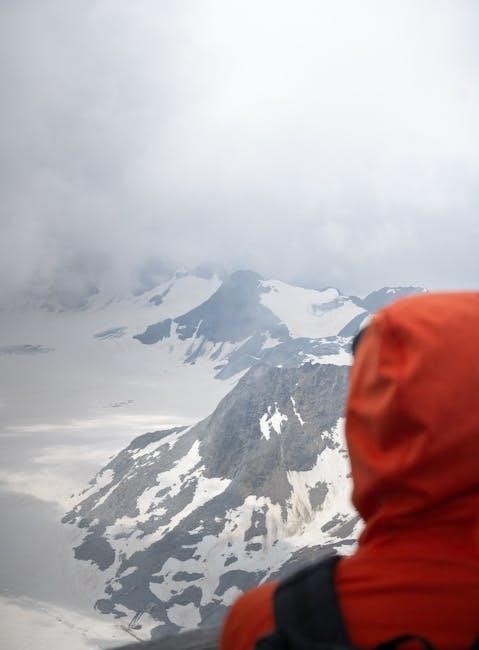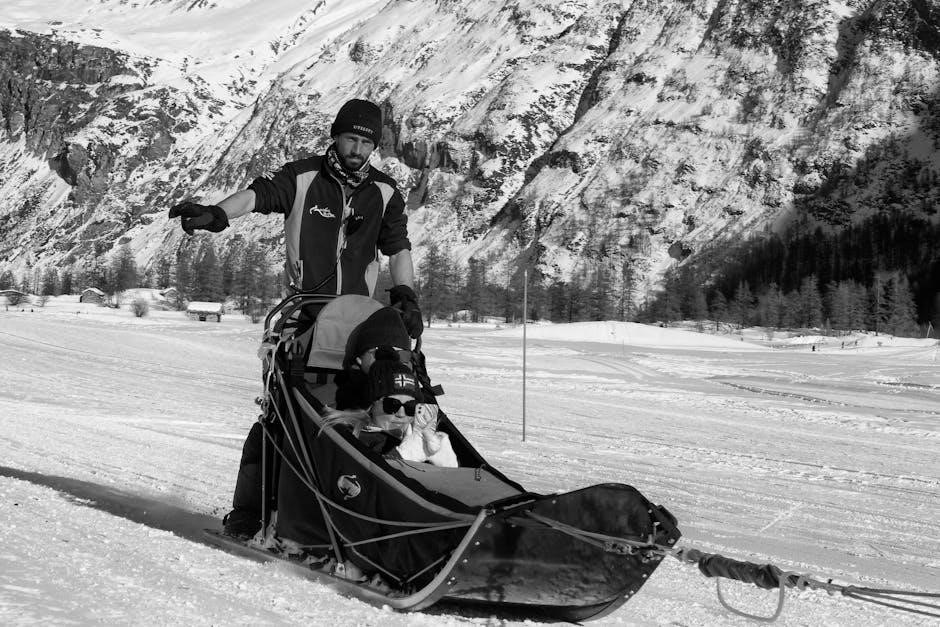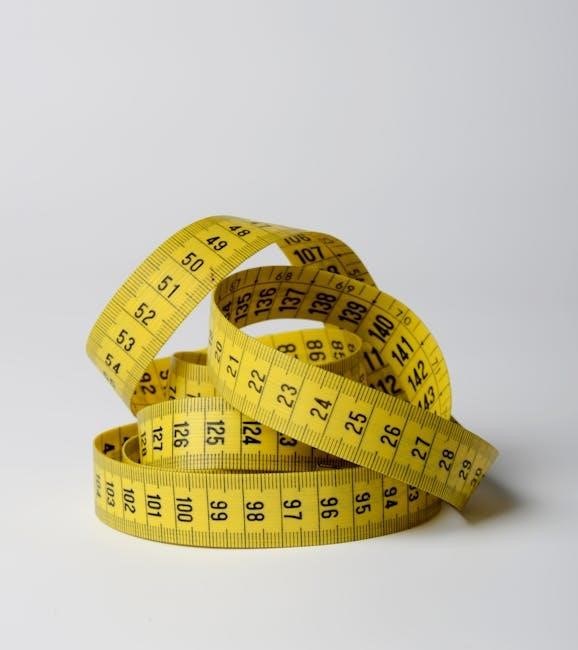Understanding ski length is crucial for optimal performance and comfort, with height and ability being key factors in determining the right size, as explained in online ski length guides always.
Understanding the Importance of Ski Length
Proper ski length is essential for a successful skiing experience, as it affects the overall performance and comfort of the skier. According to online guides, ski length is determined by a combination of factors, including height, weight, and ability. Understanding the importance of ski length helps skiers choose the right equipment, ensuring a more enjoyable and safe experience on the slopes. With the right ski length, skiers can maintain balance and control, making it easier to navigate different terrain and conditions. Additionally, proper ski length can help prevent fatigue and injury, allowing skiers to ski for longer periods without discomfort. By considering these factors and choosing the right ski length, skiers can optimize their skiing experience and improve their overall performance. This knowledge is crucial for skiers of all levels, from beginners to experts, and can make a significant difference in their skiing abilities.

Determining Ski Length Based on Height
Height is a key factor in determining ski length, with taller skiers requiring longer skis for optimal performance and control always using online guides for reference.
General Guidelines for Ski Length
General guidelines for ski length suggest that a beginner should ski something that comes up to their chin, while an intermediate should ski something that comes up to their nose.
Experts tend to have their own views about ski length and often go outside this traditional advice, considering factors such as style, skill, and weight.
For most skiers, the right ski length will depend on a combination of these factors, and online guides can provide a useful starting point for determining the ideal ski length.
By considering these guidelines and consulting with experienced skiers or boot fitters, skiers can find the right ski length to suit their needs and improve their overall skiing experience.
Online resources and expert advice can help skiers navigate the process of finding the perfect ski length, ensuring a comfortable and enjoyable skiing experience.
Factors Affecting Ski Length
Style, skill, and weight are key factors affecting ski length, influencing performance and comfort always perfectly.
Style, Skill, and Weight Considerations
When determining the ideal ski length, it is essential to consider an individual’s style, skill, and weight. Skiers with a more aggressive style may prefer shorter skis, while those with a more relaxed style may opt for longer skis. Skill level also plays a significant role, as beginners may benefit from shorter skis that are easier to maneuver, while experts may prefer longer skis that provide more stability and speed. Additionally, a skier’s weight can impact the ideal ski length, as heavier skiers may require longer skis to maintain floatation and stability. By taking these factors into account, skiers can find the perfect ski length to suit their unique needs and preferences, ensuring a more enjoyable and successful skiing experience. This consideration is crucial for optimal performance and comfort on the slopes.

Choosing the Right Ski Length
Expert skiers recommend choosing skis based on personal preferences and skiing style always matters greatly online.
Expert Advice for Finding the Perfect Fit
To find the perfect fit, expert advice suggests considering a combination of factors, including height, weight, and ability level. Online resources, such as video guides and sizing charts, can provide valuable information to help make an informed decision. Additionally, consulting with a reputable ski shop or experienced skier can offer personalized recommendations and guidance. By taking the time to research and understand the various factors that influence ski length, individuals can increase their chances of finding the ideal fit. This, in turn, can lead to improved performance, enhanced comfort, and a more enjoyable skiing experience. With the right ski length, skiers can optimize their technique, build confidence, and explore the slopes with greater ease and precision, making every skiing trip a memorable one, with expert advice being a crucial part of the process always.

Importance of Boot Fitting in Skiing
Proper boot fitting is essential for comfort and performance, affecting overall skiing experience with correct fit and support always needed for optimal results and safety.
How Boots Affect Comfort and Performance
Boots play a crucial role in skiing, affecting both comfort and performance. A well-fitting boot provides the necessary support and stability, allowing for better control and movement on the slopes. On the other hand, ill-fitting boots can lead to discomfort, pain, and even injury. The right boot fit is essential for optimal skiing experience, as it enables skiers to perform at their best. Boots that are too tight or too loose can hinder a skier’s ability to maneuver and balance, making it difficult to enjoy the sport. Furthermore, proper boot fitting can help prevent common issues such as blisters, bruising, and fatigue. By investing in a good pair of boots and ensuring a proper fit, skiers can enhance their overall skiing experience and improve their performance on the slopes. This is particularly important for skiers of all levels, from beginners to experts.

Types of Skis and Their Length Requirements
Various ski types exist, including race, all mountain, and freeride skis, each requiring specific lengths for optimal performance and comfort always with different characteristics and features available.
Considering Different Skiing Styles and Disciplines
When it comes to skiing, different styles and disciplines require specific ski lengths, as explained in online guides and tutorials. For instance, freestyle skis are typically shorter, while racing skis are longer.
Additionally, the width of skis also plays a role in performance, with wider skis suitable for powder snow and narrower skis for groomed trails.
Online resources and expert advice can help skiers determine the ideal ski length for their specific needs and preferences, taking into account factors such as height, weight, and ability level.
By considering these factors and choosing the right ski length, skiers can improve their overall performance and comfort on the slopes, regardless of their skiing style or discipline.
